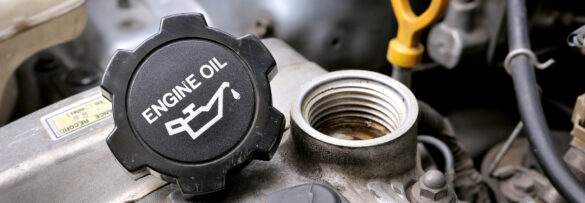Your car is more than just a machine—it’s a companion that relies on you for care. One of the simplest yet most critical ways to keep it running smoothly is by changing its oil regularly. Ignoring this can lead to costly repairs or even engine failure. But how do you know when it’s time? Let’s decode the subtle (and not-so-subtle) signals your vehicle might be sending.
1. The Dashboard Lights Are Flashing a Silent SOS
Modern cars are smart. If your oil change light (often an amber oil can icon) or check engine light flickers on, don’t shrug it off. These alerts are triggered by sensors monitoring oil pressure, viscosity, or contamination levels. Low pressure could mean insufficient oil, while degraded oil might struggle to protect engine parts. If these lights stay on, your car isn’t being dramatic—it’s begging for fresh oil.
2. Your Engine Sounds Like a Coffee Grinder
Healthy oil acts as a lubricant, silencing the metal-on-metal dance inside your engine. When oil breaks down, it loses its slickness, leading to increased friction. You might notice new noises: knocking, rumbling, or even a high-pitched whine when accelerating. These sounds are your engine’s cry for help—a clear sign it’s time to check the oil.
3. The Oil Looks Like a Murky Swamp
Pop the hood and pull out the dipstick. Fresh oil is translucent amber and slippery. Over time, heat and debris turn it thick, sludgy, and dark. If it resembles black syrup or has gritty particles, it’s no longer doing its job. Pro tip: Wipe the dipstick clean, reinsert it, and check again for accuracy. If it’s still grimy, schedule a change ASAP.
4. You Catch a Whiff of Burning Tar
A burnt oil smell inside the cabin is alarming. Old oil accumulates sludge and loses its ability to absorb heat, causing the engine to overheat. If you notice this odor paired with smoke under the hood, pull over safely. Driving with overheated oil can warp engine components—a headache (and wallet-ache) you don’t need.
5. Your Car Feels Lazier Than a Sunday Afternoon
Sluggish acceleration? Lower fuel efficiency? Dirty oil forces your engine to work harder. Contaminants clog passages, reducing lubrication and making the engine labor to perform simple tasks. If your gas mileage drops or merging onto the highway feels like a chore, fresh oil could restore your car’s pep.
6. The Oil Level Drops Faster Than Usual
If you’re constantly topping off oil between changes, something’s wrong. Old, thin oil can leak past worn seals or burn up in the combustion chamber (watch for blue exhaust smoke). While leaks might signal other issues, frequent low oil levels paired with dark residue mean it’s time for a change—and possibly a mechanic’s inspection.
7. You’ve Hit the “Expiration Date”
Even if your car seems fine, stick to the manufacturer’s recommended oil change interval (usually 3,000–7,500 miles, depending on the vehicle and oil type). However, “severe” driving conditions—like frequent short trips, towing, or dusty roads—can shorten this timeline. When in doubt, check your manual or reset the oil life monitor after each change.
Bonus Red Flag: Smoke Signals from the Exhaust
A little vapor on a cold morning is normal. But thick blue or gray smoke? That’s oil burning in the combustion chamber. While this could indicate leaks or engine damage, old, degraded oil is often the culprit. Don’t ignore this smoky plea for help.
Why Oil Changes Are Non-Negotiable
Oil is your engine’s lifeblood. It reduces friction, cools components, and traps debris. Over time, it breaks down, leaving your engine vulnerable. Skipping changes can lead to:
- Worn piston rings (hello, costly repairs!).
- Overheating and potential engine seizure.
- Sludge buildup, clogging critical pathways.
The Bottom Line
Your car can’t text you, but it communicates through sights, sounds, and smells. Listen to it. Regular oil changes are a small investment that prevent major breakdowns. If you spot any of these signs, don’t procrastinate—your engine’s longevity depends on it. And when in doubt, consult a trusted mechanic. After all, a well-oiled machine is a happy machine!
Next time you start your car, take a moment to appreciate the hum of a healthy engine—and let fresh oil keep that melody alive. 🚗💨

